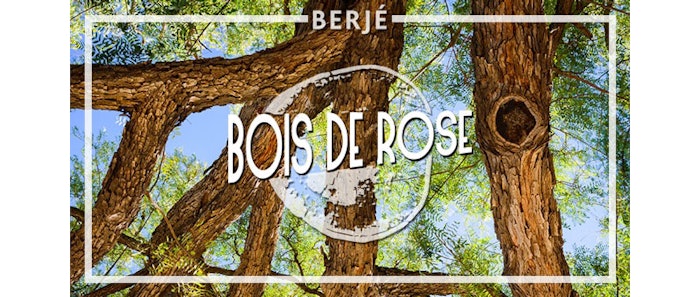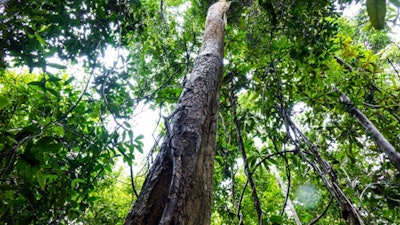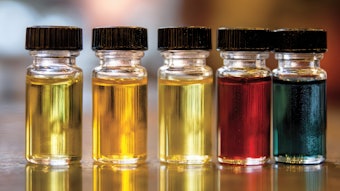
The tight regulatory controls and sustainability issues facing Bois de Rose Oil make it a fitting illustration of the difficulties of sourcing natural ingredients today. The nearly eight-fold increase in prices of Bois de Rose Oil since 1999 has put a significant strain on the costs of existing formulations and restricts its use in new natural products. The true threat of this dwindling availability is that this well-loved ingredient for which a faithful natural reproduction is nearly impossible might fall out of use. In order to keep Bois de Rose Oil part of the perfumer’s palette, Berjé carries a Bois de Rose Oil distilled from the leaves and stems of the tree rather than the heartwood. This adaptation spares the individual trees, limits the regulatory effort involved in production, and maintains a comparable Bois de Rose Oil for continued use by future generations of perfumers.
Bois de Rose Oil is typically produced from the heartwood of the rosewood tree in the Amazon. This oil is produced more sustainably without the need to sacrifice the tree by distilling a comparable oil from the leaves and twigs.
 Long sought after as a natural source of linalool, this oil’s aroma is fresh, sweet, woody, and floral with subtle spicy nuances. The top-note is slightly camphoraceous with a slight nutmeg-like spice. In flavors it is ideal for tea, peach, apricot, and blueberry profiles. Further isolation of the linalool is available at over 90%+ in Linalool ex Bois de Rose Oil also known as Linalool Terpeneless. This natural source of linalool has a clean aroma with a slightly woodier facet than synthetic linalool. It can be used in the same capacity as the synthetic grade, in woody and floral fragrances and lends itself to an extremely wide range of flavor profiles in considerable quantities. Berjé maintains a regular supply of Bois de Rose Oil, Linalool ex Bois de Rose, as well as Organic Bois de Rose Oil.
Long sought after as a natural source of linalool, this oil’s aroma is fresh, sweet, woody, and floral with subtle spicy nuances. The top-note is slightly camphoraceous with a slight nutmeg-like spice. In flavors it is ideal for tea, peach, apricot, and blueberry profiles. Further isolation of the linalool is available at over 90%+ in Linalool ex Bois de Rose Oil also known as Linalool Terpeneless. This natural source of linalool has a clean aroma with a slightly woodier facet than synthetic linalool. It can be used in the same capacity as the synthetic grade, in woody and floral fragrances and lends itself to an extremely wide range of flavor profiles in considerable quantities. Berjé maintains a regular supply of Bois de Rose Oil, Linalool ex Bois de Rose, as well as Organic Bois de Rose Oil.Disclaimer:
The above paid-for content was produced by and posted on behalf of the Sponsor. Content provided is generated solely by the Sponsor or its affiliates, and it is the Sponsor’s responsibility for the accuracy, completeness and validity of all information included. Perfumer & Flavorist takes steps to ensure that you will not confuse sponsored content with content produced by Perfumer & Flavorist and governed by its editorial policy.










